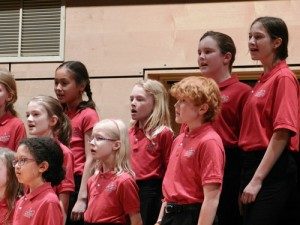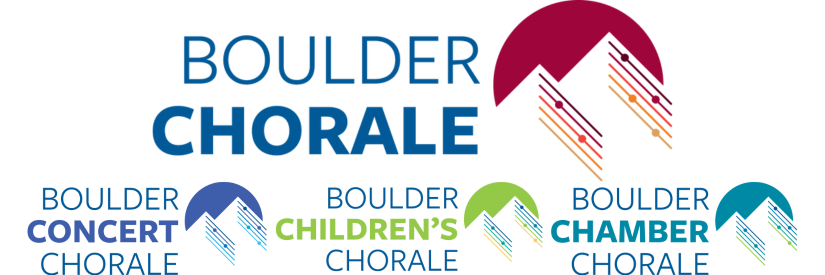THE BENEFITS OF MUSIC EDUCATION
By Judy Finman
Ask the experts about the value of music education for children, and they are unanimous: Music study has lifelong benefits. It is good for the brain and the body, for developing skills like cooperation and self-discipline, and for pleasure, satisfaction, and self-confidence.
Plus, to quote Dana Flitcraft, owner of HB Woodsongs music store in Boulder, “Music makes you happy.”
Flitcraft says, “There are many opportunities in Boulder to be involved in music lessons and groups. The public school teachers do an amazing job of recruiting and retaining students for the band and orchestra program, and some schools also offer guitar classes. Additionally, there are many private studios and academies in the area that offer group and individual lessons and camps for all instruments and styles such as bluegrass, rock or classical. Many of those are listed on our website, www. hbwoodsongs.com. Woodsongs offers guitar, banjo, mandolin, bass, ukulele, dulcimer, violin, and cello lessons by professional teachers at the store.”
Flitcraft advises that if a child shows an interest in a particular instrument, the parent and child can consult with a few music teachers to find a good fit. If the child does not favor a particular instrument, they may try out various instruments to find one they might like and be physically able to play. The public school teachers can help. Many music academies have open house events or booths at city festivals. Woodsongs can help.
Renting an instrument allows the child to try it out without the parent making a large initial investment. Woodsongs allows students to exchange instruments if one does not work out. The parent can rent an instrument until the rent collected equals the purchase price, or return the instrument at any time after the first two months. They have new and used instruments; the latter rent for less money.
Families on tight budgets can check with the public school teachers at the beginning of the year. The schools have a limited number of instruments to rent inexpensively. Some music academies lend instruments as well.
Boulder Piano Studio offers private and group lessons for adults and children. “Our classes focus on helping our students not only learn to enjoy playing well, but learn the language of music, how to create music, improvise and compose,” says Director Susan Rudosky. “They also develop a keen ear for music; being able to recognize the structure of pieces and hear a piece in their head just by reading the music. They learn to sight read, develop good technique and build a repertoire of music they can play and enjoy. Our group and private piano lessons for all ages inspire learners with the magic of music and the fulfillment of performance.”
She says that the “piano is an ideal instrument for learning music. Visually, it is easier to understand how music “works” on the piano. The piano keyboard shows how melodies move in steps/ skips/ going higher or lower. The keyboard has the largest melodic range of instruments. The keyboard makes it easier to understand harmony – seeing how chords are built and relate to the melodies.”
Kids can learn music through orchestra and band at school and choral groups in school or at church. Music scholarships are available through some organizations.
“Studies have stressed how music can improve test scores, increase brain activity, improve our spatial reasoning. Music making goes further, providing a sense of fun, joy in creating/ producing something that the individual can share with others. How rewarding! Who doesn’t love music? It connects us all.”
Boulder Suzuki Strings
teaches violin, viola, and cello, founder Amy Gesmer-Packman explains. Instruction begins with the young student learning to play an instrument, generally before entering elementary school, “though we start many children of elementary school age and teach these students until they graduate high school and go to college. Once lessons begin in BSS the parent will attend with the child, to take notes during the lesson and become the home teacher following the instructions of the teacher. As the child gets older and more advanced, the role of the parent changes; the student takes over the full responsibility of practice. The students attend group lessons approximately twice a month. Traditional lessons are also available, where the student attends the lesson alone, practices, and no group is involved. “The sociological value of music cannot be overstated,” Gesmer-Packman says. “When students are performing they are learning about themselves as they bring music to others I encourage my students to play in their school orchestra and participate any way they can.” For kids whose families are on a tight budget, Gesmer-Packman says, “We are a 501(c3). We fundraise and then offer scholarships.”
Ethan Hecht, Executive Director of the Boulder Chorale, has a lot of experience managing performing arts organizations in the Boulder area. He is also Principal Viola of the Fort Collins Symphony.
“There are many local music stores that rent instruments,” he notes. “For families who can’t afford a full fee there are options for reduced cost rentals including the non-profit organizations like the Colorado Music Festival and Center for Musical Arts, And many schools are working to make those opportunities available. There are also many ways for families to receive free tickets to concerts. Sometimes a concert is the spark necessary to turn a student on to an interest in music.
“There are countless studies about how music study helps everything from math and reading skills to problem solving. Sometimes I think we lose sight of the importance of art and beauty for their own sake. Learning to make and appreciate something beautiful in this world is an important thing to learn regardless of the other tangible benefits.
“Music surrounds us. It’s in our stores, our cars, TV, movies and restaurants. It is an essential part of our culture even for those who don’t make it a priority. Children should be offered the opportunity to learn about something that plays such an important and allpervasive role in our society.”
Kate Klotz, Artistic Director of the Boulder Children’s Chorale, notes, “We have three choirs for singers in grades 1-8. Children do not need any prior experience to participate. We provide weekly instruction in singing and music theory, and prepare our singers for three concerts each season, in addition to fun outreach events throughout the year.” To schedule an audition, contact her at kate@boulderchorale.org.
For kids whose families are on a tight budget, she says, “Many of the arts organizations in Boulder offer scholarships and financial assistance to families in need, allowing children to participate in private lessons, group instructions or other musical activities. In addition, we are fortunate to have tremendous support for music and the arts and outstanding teachers in our public school system. Many schools offer extra-curricular music activities that children can participate in at little or no cost to families.”
 Boulder Children’s Chorale (Photo courtesy of Boulder Chorale)
Boulder Children’s Chorale (Photo courtesy of Boulder Chorale)
